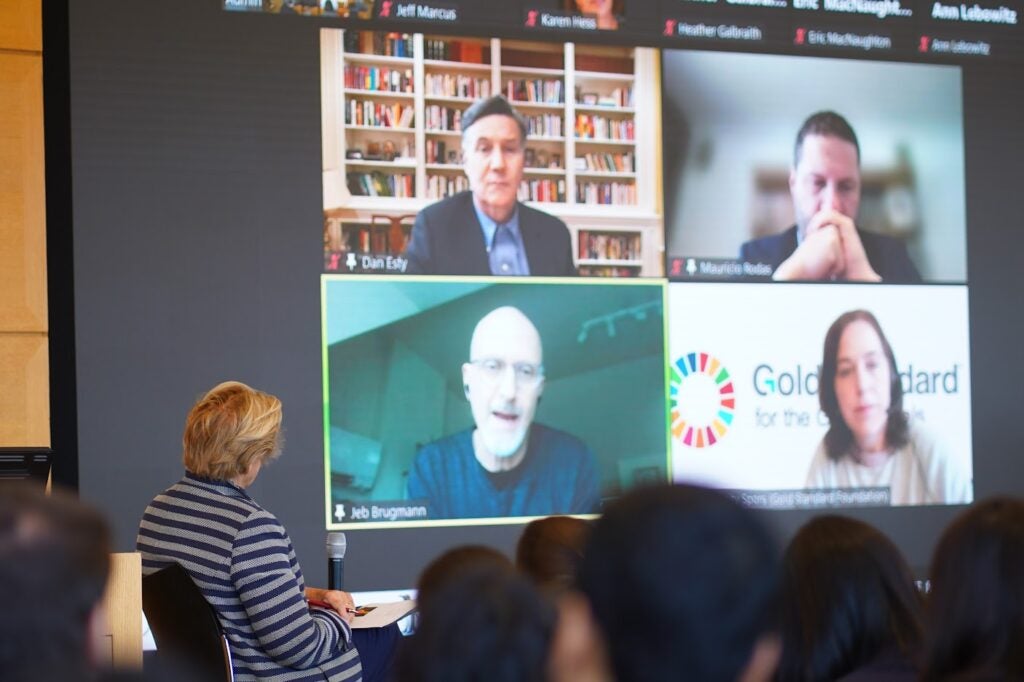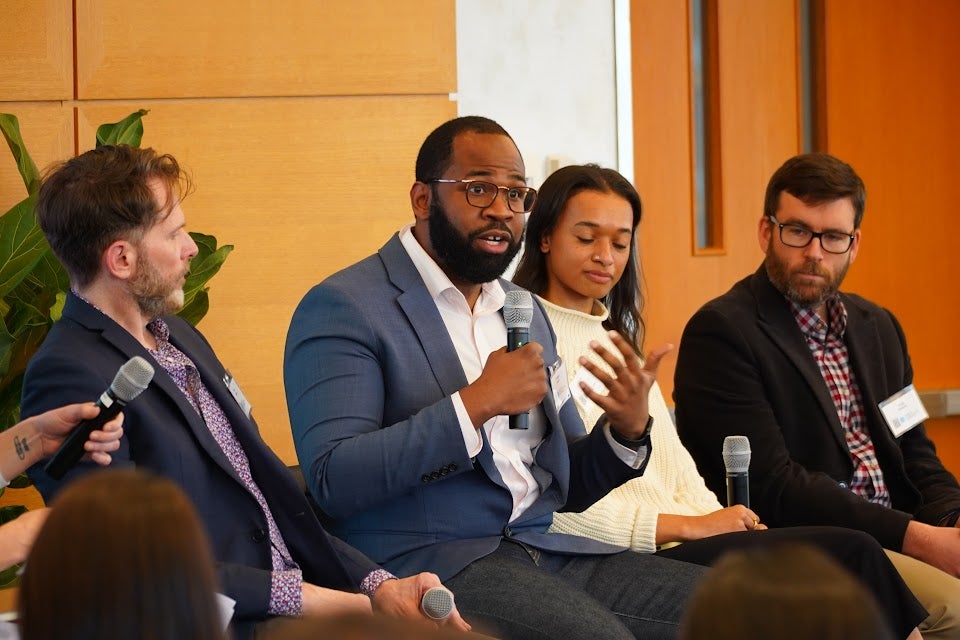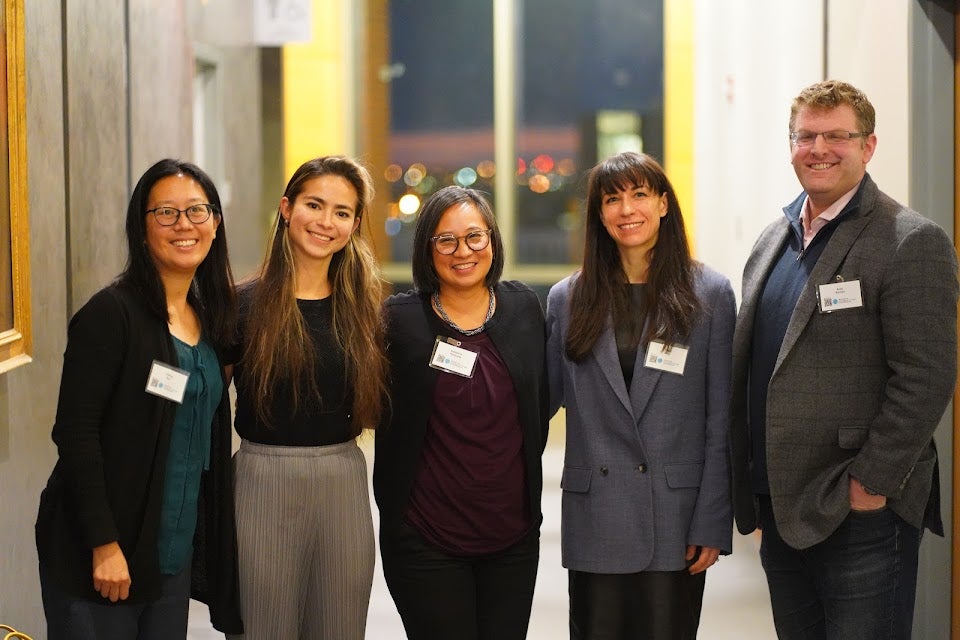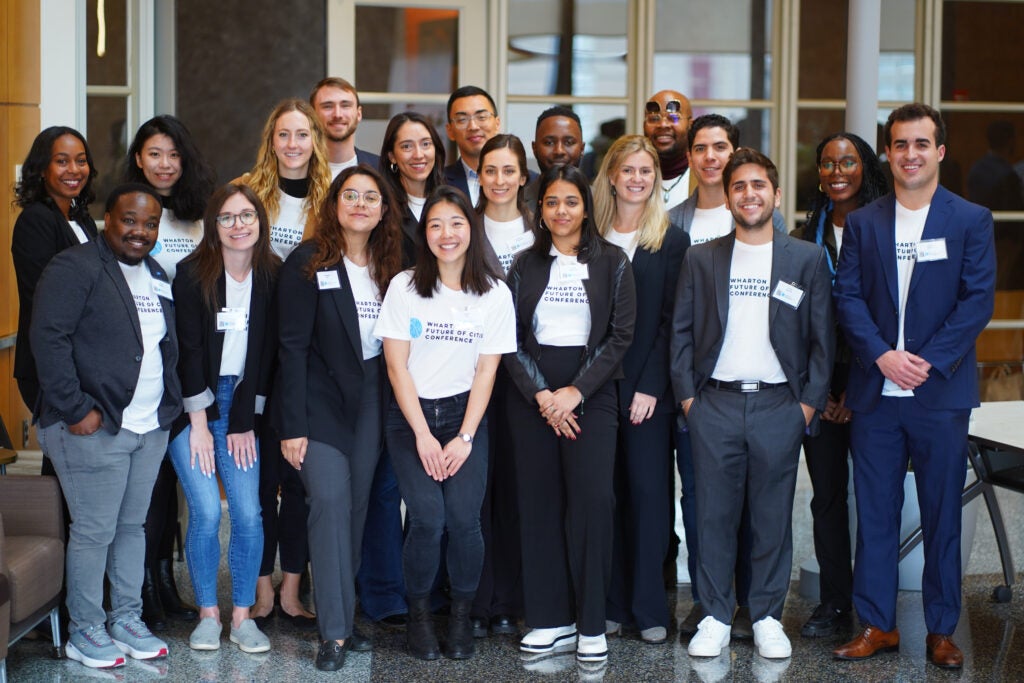
Taking Local Action: How Cities Can Respond to Climate Change
Cities play a major role in driving innovation. Through investment in new technologies and knowledge sharing, cities can accelerate their progress on climate goals.
Cities are home to the majority of the world’s population and industries, and urban areas are constantly growing and adapting to meet new challenges. According to the World Bank, cities generate more than 70% of annual global CO2 emissions. We will not be able to hit our global climate goals unless we clean up our built world, our transportation systems, and the energy that powers our urban areas.
Creating greener urban environments requires tight coordination between public officials, urban planners, residents, and business owners, and that’s one reason the students from the Wharton MBA program and the Weitzman School of Design came together to found the Wharton Future of Cities Conference in 2020.
Today, the Future of Cities Conference is an annual event hosted by students and faculty from across the University of Pennsylvania, including the College of Arts and Sciences, Wharton, Weitzman, Penn Institute for Urban Research, Penn Carey Law, and more. The event is designed to bring together experts and urban enthusiasts from a variety of industries to discuss the problems our cities are facing, and how we may come together to solve them. This year’s conference brought together over 30 speakers from around the world and 200 attendees (both virtually and in-person).
One common thread throughout the day was that the transition to green energy and reducing carbon emissions in cities is driving innovation around the world. This takeaway was especially evident in the panels on international responses to climate change, streets and integrated infrastructure, and financing the future of cities.

The 2023 Future of Cities Conference kicked off with a panel titled “Cities and a Shared Challenge: International Response(s) to Climate Change,” moderated by Eugenie Birch, Lawrence C. Nussdorf Chair of Urban Research and Education and co-Director of Penn IUR. The panel emphasized that cities around the world are facing the negative effects of climate change, and that we will be stronger in the face of this shared threat if we support and learn from one another. Conference-goers learned that cross-cultural exchange will be critical to meeting our climate goals, and that cities can make an impact by taking action against climate change on a local level, even while nations are stuck in high-level debate.

The conference also featured a panel on City Streets and Integrated Infrastructure, as well as a lecture on the Smartest Street in America by speakers from AECOM. According to AECOM, by 2030 there will be 5 billion people living in cities around the world. The streets where those people live are ever evolving and to meet our climate goals, we will need to incorporate innovative technologies into our cities such as smart sensors, and better data processing systems. This smart infrastructure can enable cities and residents to use energy in a more precise and efficient way, and to reduce carbon emissions over time.

Through the final panel of the conference, which was focused on Financing the Future of Cities, panelists returned to the topic of how cities are responding to climate change. For example, during the financing panel, participants noted that venture capital money is being directed towards companies that will enable transitions to green energy in cities, such as companies enabling solar power and EVs.
The 2023 Future of Cities conference ended with remarks from former Philadelphia Mayor Nutter, which made everyone proud to be in Philly, one of the most dynamic cities in the country. As conference participants noted throughout the day, cities such as Philadelphia are changing every day in response to climate change. We need to invest in new technologies to make our cities greener, and learn from each other across borders, to accelerate our progress and to hit our climate goals over time.
The entire Future of Cities Conference team would like to say thank you to the Kleinman Center for their partnership again this year. Thank you for supporting the conversation on the Future of Cities at Penn!

